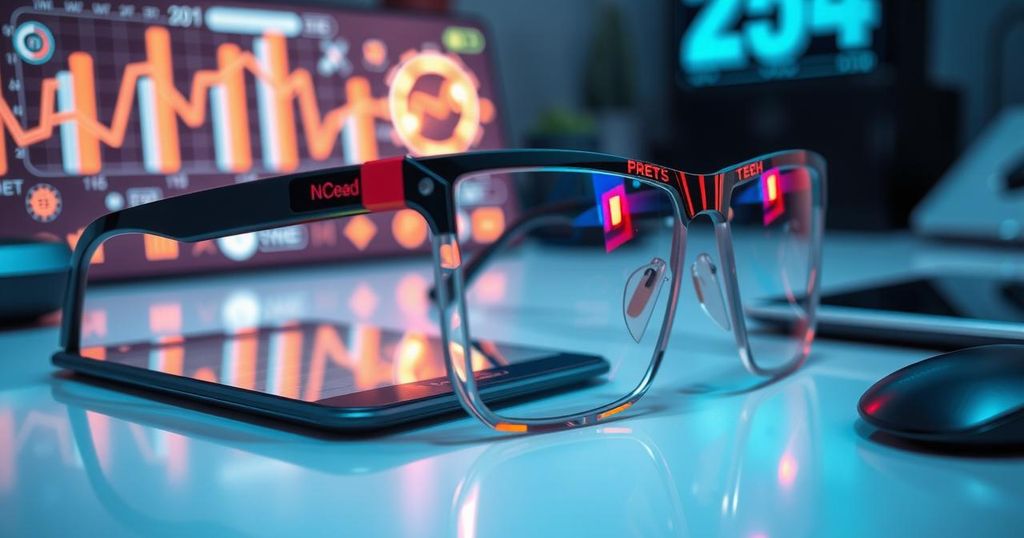Meta’s collaboration with EssilorLuxottica has led to over a million sales of stylish smart glasses, appealing due to their lightweight design and advanced features. Other tech giants are now developing similar products, although profitability remains a concern amid significant projected losses for Meta’s division. Analysts note favorable gross margins, suggesting potential for future success in this growing market.
Smart glasses are set to gain significant attention in 2025, particularly with Meta’s successful collaboration with EssilorLuxottica, resulting in over a million sales of Ray-Ban branded smart glasses. These devices are lightweight and integrate various features such as audio, video, and AI assistance, appealing to consumers compared to bulkier VR headsets. The glasses offer practical capabilities such as hands-free content capture and real-time translation, all while connecting seamlessly to smartphones.
Other tech companies are also venturing into smart glasses development. Baidu has introduced AI-powered glasses, while Amazon is reportedly creating smart glasses tailored for delivery drivers. With suppliers increasing production capacity, Vuzix intends to produce up to 50 million units annually by 2028. Major players like Apple, Samsung, Xiaomi, and Alphabet are also actively developing similar products, reflecting a growing interest in this technology.
Despite the promising sales, profitability remains uncertain. While Meta’s Reality Labs division, which includes the Ray-Bans and augmented reality prototypes, is expected to generate $2 billion in revenue by 2024, it will also face considerable operating losses exceeding $60 billion over three years. Meta aims to reduce expenses by nearly 20% in this division through 2026, highlighting the financial challenges ahead.
However, analysts remain optimistic about the potential profits. Reports suggest that it costs approximately $135 to manufacture each Ray-Ban, indicating a favorable gross margin of 45%. This margin surpasses that of Apple’s smartwatch and closely aligns with the profitability of AirPods, suggesting room for growth if production costs can be effectively managed.
As 2025 approaches, more companies and investors are expected to enter this burgeoning market, inspired by Meta’s initial success. Identifying a leading product in the smart glasses arena may prove challenging, given the competition and technological advancements in the field.
In recent years, virtual and augmented reality applications have not gained widespread acceptance due to their bulky designs and complicated user experiences. However, advancements in technology and materials have enabled the development of more practical devices, such as smart glasses. Companies like Meta and EssilorLuxottica are pioneering this space, presenting smart glasses that blend innovation with everyday usability, which is essential for capturing consumer interest. As a result, the smart glasses market is poised for rapid growth, attracting attention from numerous tech giants and startups alike.
The burgeoning smart glasses market is beginning to capture the attention of major tech companies, driven by Meta’s successful Ray-Ban collaboration. Despite positive sales projections, the challenge of achieving profitability persists with substantial projected losses in the Reality Labs division. Nevertheless, the potential for significant gross margins offers a glimmer of hope for future products, encouraging industry players to invest despite the uncertainties ahead.
Original Source: www.tradingview.com

Leave a Reply